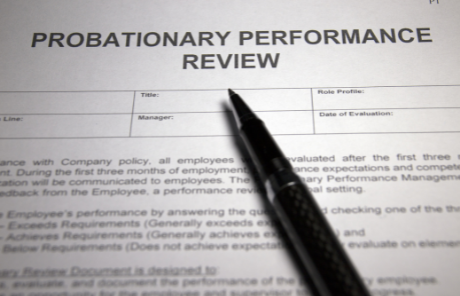
How to make the transition to ‘Manager’ in your Legal Role
- November 11, 2022
All great legal careers need to start somewhere. For most employees, the path to progression begins with an entry-level position. Over time, as you develop your skills and knowledge, you can apply for promotions and higher-paid roles.
After a while in the legal industry you may feel you have the leadership skills, knowledge, and expertise to thrive in a managerial role. A position as a manager can be an excellent way to increase your earning potential, showcase your knowledge, and unlock greater job satisfaction.
However, figuring out how to move into your first legal manager position can be challenging.
Here are some of the top tips you can use to improve your chances of a new leader-level job.
Step 1: Excel in Your Current Role and Do Your Research
To achieve any promotion in the legal landscape, you first need to show your manager how great you are at what you do. Managers need significant expertise and experience in the field they’re going to be supervising. Showing your leaders, you’re a capable, and accomplished member of the team will make them more likely to see your potential as a manager.
While you’re working on demonstrating your value in your current position, it’s worth doing some research. Find out what kind of skills the current managers in your law firm have, and determine whether there are any gaps you’ll need to fill in your own abilities. For example, as a manager you will need a commercial oriented mindset as you will be responsible for generating new business for the firm, and this is especially the case with solicitors and barristers, whose success depends on their ability to secure new clients and their more entrepreneurial approach.
It can also be helpful to look at how your law firm handles internal movement and promotions. Are there certain times of the year when your employer makes decisions about who should be moved into leadership roles? Finding out in advance will help you to decide when to approach your employer about any management opportunities.
Step 2: Develop Your Managerial Skills
There’s more to thriving in a managerial position than being an expert in the legal industry. There’s a good chance you’ll need to develop some crucial new skills to prove you can succeed in a managerial role.
The research you’ve done into the other managers in your law firm should help you to determine which talents matter most to your law firm. However, some of the most common managerial skills you may need to develop include:
Leadership skills: Learn how to motivate, inspire, and engage other employees by taking on the leader position in group tasks and volunteering for opportunities to take charge.
Decision making skills: You’ll need to be able to effectively analyse situations and respond to different scenarios with confidence.
Organisational skills: Demonstrate your organisational skills by ensuring you always meet with deadlines, and deliver punctual work.
Interpersonal skills: Work on your emotional intelligence and communicate regularly with leaders and other colleagues in your law firm.
Problem-solving skills: Show your ability to respond creatively to problems by suggesting solutions to issues in team meetings.
It’s also helpful to invest in your continued education. Earning new certifications and accreditation will demonstrate your expertise in your industry, and help to differentiate you as a potential leader.
Step 3: Show Initiative
Often, proving you’re ready for a legal management job means making sure you take advantage of every opportunity to showcase your expertise and abilities. This means you’re going to need to take initiative if you want to stand out.
Volunteer for tasks a manager might normally do, like taking charge of a team project, or helping your boss with a challenge most people would rather avoid. Rather than waiting for your supervisors to offer you training and development opportunities, seek out your own educational strategies to develop the skills you know are crucial to your law firm.
You can even demonstrate your leadership capabilities outside of your current role, by taking on leadership positions in non-profit organisations, and sharing your volunteering experiences with your company leaders.
Step 4: Ask for the Position
Once you’ve had a chance to demonstrate your abilities, built your skillset and connected with the supervisors in your workplace, it’s time to ask for your new role. Arrange a time to meet with your boss face-to-face or over video so you can discuss your career progression opportunities.
During this meeting, you’ll need to be prepared to explain why you’re ready for this new challenge, and provide as much evidence as possible. Highlighting your recent accomplishments, and drawing attention to the managerial skills you’ve developed will be useful here. If possible, it’s always a good idea to have relationships with other legal managers in your team who can vouch for you.
If your employer doesn’t think you’re ready for a manager role yet, or there isn’t a space available for you to move into, ask what the next step is. Work with your boss to figure out what you need to do to transition into your ideal role.
Step 5: Be Prepared to Switch Law Firms
Finally, if you’re committed to becoming a legal manager, it’s important to be flexible. The reality is, even if you do all the work and prove yourself to your existing employer, there may not be a leadership opportunity available in your current law firm.
Unless your boss is looking for a manager to fill a role after another team member has left, there’s a good chance they won’t be able to find the budget to create a new position just for you. With this in mind, you may need to look elsewhere for your management job.
Work with a legal recruitment agency to track down positions relevant to your expertise and experience. Our team at Clayton Legal will be able to help you find a new legal role that not only offers you the manager responsibilities you want, but the firm culture and benefits you need too.
About Clayton Legal
Clayton Legal has been partnering with law firms across the country since 1999 and during that time has built up an enviable reputation for trust and reliability. We have made over 5,000 placements from partners to legal executives, solicitors to paralegals and legal IT personnel to practice managers.
Click here to speak to one of our experienced Legal specialists or call 01772 259121 for more information on how our exceptional recruitment experience can help your career aspirations.











